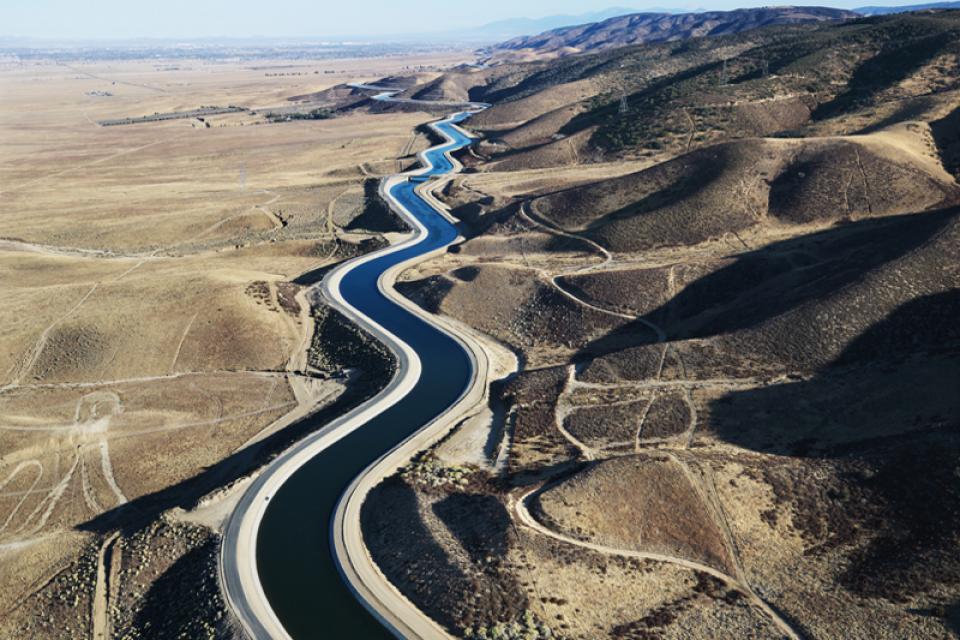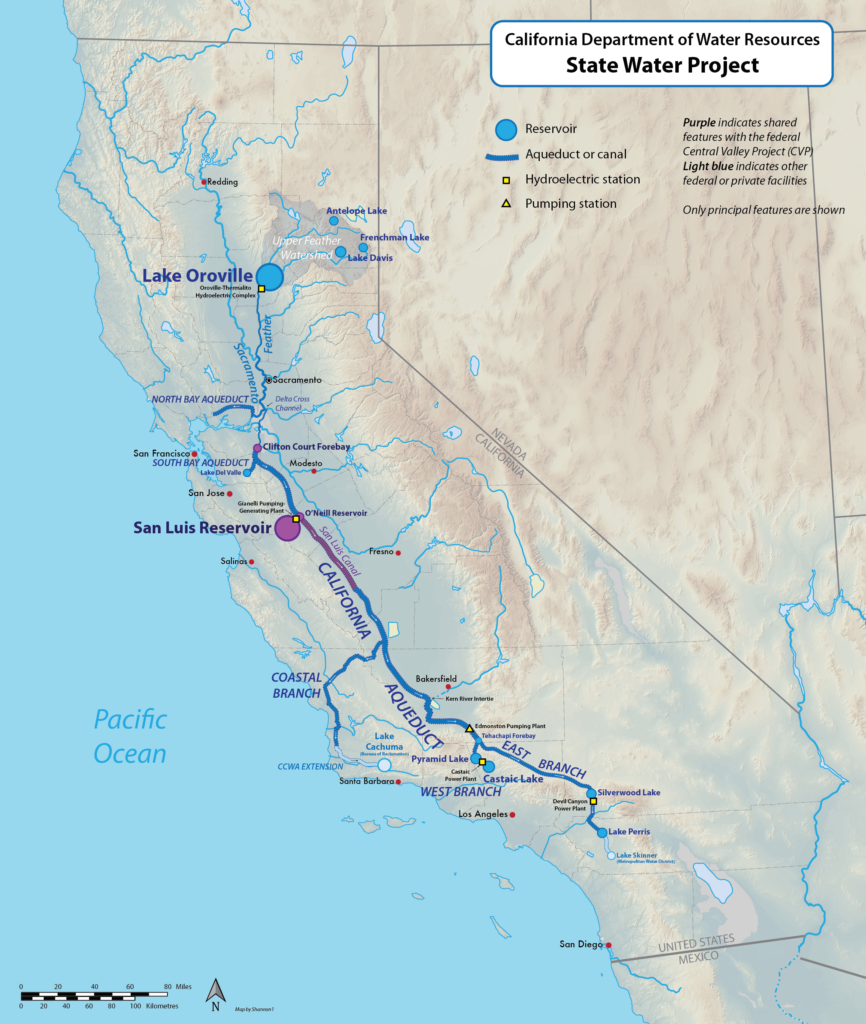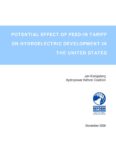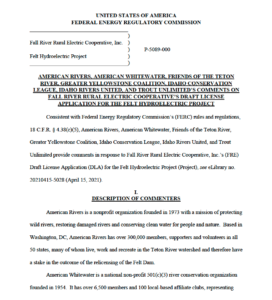CSPA Sues California over Operations of the State Water Project

California State Water Project
On November 26, 2024, the California Sportfishing Protection Alliance sued the California Department of Water Resources (DWR) and the California Department of Fish and Wildlife (DFW) over the “Incidental Take Permit” (ITP) for the operation of the State Water Project. CSPA’s Verified Petition for Writ of Mandate and Complaint for Declarative and Injunctive Relief alleges violations of the law under the California Environmental Quality Act (“CEQA”), Public Resources Code (“PRC’) section 21000 et seq.; the Delta Reform Act (“DRA”), Water Code section 85000, et seq.; the California Endangered Species Act (“CESA”), Fish and Game Code (“F&GC”) section 2050, et al.; and the Public Trust Doctrine.
In simple terms, CSPA sued DWR over the Final Environmental Impact Report (FEIR) for its inadequate analysis in support of the ITP. CSPA sued DFW over the failure of the ITP itself to protect threatened and endangered fish, as well as for other failures of law. An ITP is the state equivalent under the California Endangered Species Act (CESA) and has a function similar to a “biological opinion” under the federal Endangered Species Act.
The Petition and Complaint sets forth in 69 very readable pages what is wrong with the FEIR and the ITP.

California Department of Water Resources State Water Project
One of the most easily understandable defects of the FEIR and the ITP is that they rely on the grossly inadequate flows of the proposed “Voluntary Agreement” in place of the State Water Board’s proposed update of the Bay-Delta Plan. DWR and DFW treat the Voluntary Agreement as a done deal and build the ITP structure on top of its flimsy foundation. (For further discussion, see CSPA’s January 2024 comments on the Bay-Delta Plan and the Voluntary Agreement.)
A second clear defect is the failure of the FEIR and ITP to analyze and place conditions on the operation of Oroville Reservoir, the State Water Project’s largest water storage facility and the second largest reservoir in California. DWR and DFW trot out the rusty refrain that DWR has no plans to change the operation of Oroville, so there’s nothing to analyze. However, there are no explicit regulatory rules that constrain Oroville’s water supply operations for the protection of CESA-listed fish, in any venue. DWR could change its operating rules for Oroville, with no environmental review, at any time.
CSPA is joined in the lawsuit by the North Coast Rivers Alliance, the San Francisco Crab Boat Owners Association, and the Winnemem Wintu Tribe. The Law Offices of Stephan C. Volker filed the suit on behalf of CSPA and fellow plaintiffs.
This post was originally posted by California Sportfishing Protection Alliance. Find the original article here.


